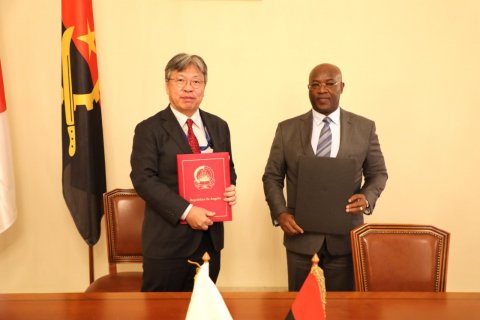Pedro Filipe, who was speaking at a press conference to present the results of the first half of the year of the Ministry of Public Administration, Labour and Social Security (MAPTSS), said that formal jobs were created mainly in the areas of commerce, followed by collective service activities, with good indicators also in the areas of industry and construction.
According to the minister, the unemployment rate, at around 29 percent, continues to be a concern, with a tendency to decrease, but the figures achieved are still unsatisfactory.
"We have been doing consistent, considerable work, the figures are increasingly satisfactory, but they are still below what is desirable", he said.
The Secretary of State for Labour and Social Security stressed that the number of active population of working age is around 17 million people, "of which almost five million are still considered unemployed".
"Twelve million people are employed, but just over three million have formal jobs (...), so we have just over nine million citizens who work and have an income, but who are still a concern, because they are informal jobs", he added.
The minister considered that "it is a major challenge", with the authorities' focus being on combating unemployment by mobilizing, raising awareness and attracting this segment of the informal sector "which produces, which is important for the economy, for the country, but which needs a boost to enter the formal sector".
"We are making progress, the numbers encourage us, but we are not yet satisfied, because we cannot sleep peacefully while 29 percent of the workforce is unemployed", he stated.
April led the way in the number of jobs created, with 20,997 jobs, and February with 14,474, for an average of 17,722 jobs created monthly.
Luanda, with over 49 percent of jobs created, followed by Benguela, Cabinda, Huíla, Malanje and Huambo, were the provinces that stood out in terms of employability.
Due to the modernization of employment centres, greater publicity and credibility of institutions, demand from citizens and offers from companies increased, highlighted Pedro Filipe.
"In this semester, we have had an interesting movement at the employment centre level, with an offer of around 35,445 and demand amounting to 35,190. This gives us a very clear sign of the reorganization of employment centres", he stressed.
Pedro Filipe highlighted that preparations for the National Employment Observatory are underway, and its activities are expected to start at the end of July.
According to the minister, there are currently 112,610 people enrolled in the national vocational training system, of which 65,130 have already completed their training, 1238 have failed and there is a "worrying dropout rate" of 3785 trainees, with 42,457 still in training.
During the period in question, there was also the loss of 3233 jobs, mainly due to the lethargy of companies, especially small companies, and the country's economic situation, he said.
The national director of Labour, Blanche Chendovava, explained that the seasonality factor in some activities has also influenced the issue of job losses.
"There are activities that generate more jobs at a certain time of year, but we are referring to fishing and agriculture, however, the trade sector also recorded some decline in employability (...) which may also be due to some seasonality or some retraction, even if minimal, in the macroeconomic indicators", he highlighted.







